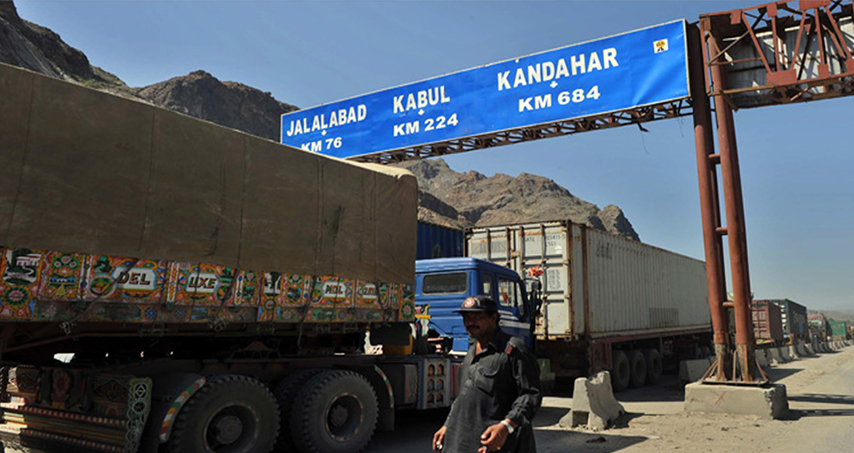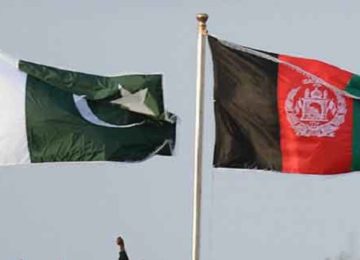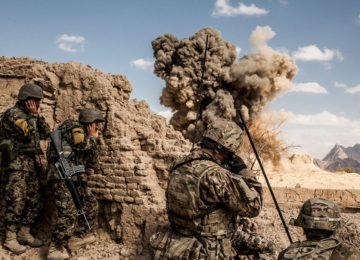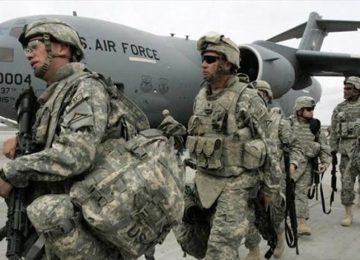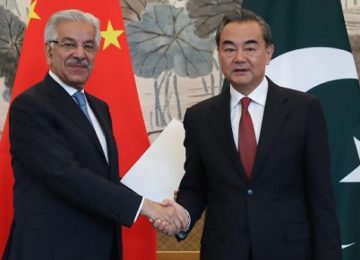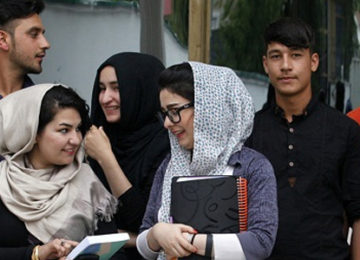The lack of a mutually agreed transportation mechanism continues to obstruct the free flow of goods across Pakistan and Afghanistan. Vehicles’ movement is subject to several restrictions, including those on the transportation of Afghan transit cargo from Karachi to various border posts – Torkham, Chamman, and Ghulam Khan in particular. They are not just barriers but also avenues for exploitation by officials.
Section III Article 4 of the Afghanistan-Pakistan Transit Trade Agreement (APTTA) identifies the routes used for transit traffic as:
i) Maritime ports in Pakistan
ii) Airports in Afghanistan and Pakistan, for air-to-air transit only
iii) Transit rail/ road corridors through Pakistan and Afghanistan
iv) Land stations between the contracting parties or between one contracting party and a third country.
Annex One discusses these routes in detail. Protocol 2 of APTTA is on the Temporary Admission mechanism, so based on this, half of the APTTA is on transport and temporary admission and the remaining half covers other parts of transit trade.
Both countries had agreed on the Temporary Admission Documents (TAD) mechanism but no implementation has been made yet. TAD essentially means a document issued by a competent authority of one contracting party that allows vehicles registered in the territory of the other contracting party to enter or exit or transit through its territory”.
Before Ashraf Ghani assumed the presidency, Pakistani trucks could take cargo up to Hairatan (Uzbekistan), Sher Khan (Tajikistan), and Torghundi (Turkmenistan).
But Ashraf Ghani – with his obvious India tilt and growing frustration with the Taliban’s violent campaign – brought an end to that; if Afghan trucks cannot go up to Wagah, why should Pakistani carriers be allowed through Afghanistan to central Asia, he asked.
With this, he restricted Pakistani trucks only up to Jalalabad (via Torkham) and Kandahar (via Chamman).
Ghani turned this into a personal issue of ego and thus embittered the bilateral relationship. He demanded unrestricted access for Afghan carriers up to Wagah but Pakistani officials had their views on the issue – mostly anchored in the uneasy relationship with India.
During APTTA discussions, Afghan representatives argued for equal privileges. They believed that if Pakistan could access third-country ports, Afghan trucks should also reach places like Wagah, Sust, Port Qasim, Karachi, and Gwadar port.
Until that point in time, Afghan carriers could drive up to Peshawar while some 200 Afghan trucks registered in Pakistan with Afghan drivers could freely ply between Afghanistan and Wagah. Many continue to enjoy that facility even today but the dominant majority remains hamstrung by regulation.
Out of 7 APTTCA (Afghanistan Pakistan Transit Coordination Authority) committees, 4 agreed to extend Afghan transport beyond Peshawar to Wagah. Yet, not a single Afghan truck made that journey.
Even after the Indian government unilaterally announced that any Afghan vehicles coming to Wagah would be allowed up to the Attari integrated checkpost, Pakistan never permitted any Afghan trucks onto the integrated point.
Some Afghan transporters possess road passes issued in the past by Pakistan. They are not being issued any more, but many trucks continue to ply between Afghanistan and Wagah on expired Road Passes. That also highlights the issue of graft involved in the business.
Another means of potential corrupt practices is the Goods Declaration (GD) certificate that is issued to Afghan importers in Karachi.
Once a crossing point is identified on the certificate, it becomes impossible for the carrier to cross into Afghanistan from another point in case there is trouble at the designated point. The Afghan trader is required to first go to Pakistan customs to request a change in the route mentioned in the GD certificate.
Why can the Goods Declaration not be used for crossing any border point if the entire process can be integrated online?
The several-day closure of the Torkham Border in September was a case in point; the hold-up led to the loss of millions of dollars to traders on both sides.
The big fear is that if border trade suspension becomes a regular feature, then this trade will relocate to Iran. The latest measures intended to curb “smuggling via transit trade” will only adversely impact the business, and potentially drive it to Iran’s Bandar Abbas and Chabahar ports.
What is the answer to these operational hiccups?
Experts believe in the potential of Real-Time Data Sharing, as suggested in APTTA. In this system, as a container docks at the Karachi port, Afghan customs would be immediately informed about its contents and movement. As Pakistani customs would oversee the cargo’s passage at primary crossings, unnecessary inspections would diminish. Adopting a similar model with countries like Tajikistan and Uzbekistan under the CAREC (Central Asian Regional Economic Cooperation) program could further enhance this system, streamlining border businesses and minimizing importers/exporters’ ordeals.
Imtiaz Gul
Imtiaz Gul has over 35 years of journalistic experience. Gul regularly appears as an analyst/expert on Pakistani and foreign TV channels as well as the Doha-based Al-Jazeera English/Arabic satellite TV channel for his expertise in areas such as Afghanistan/Tribal Areas/and the Kashmir militancy. He has authored several books.



